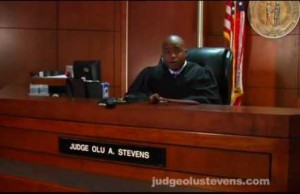
Jefferson County, Ky., faces a long-running problem with juries that are inadequately representative of its population, but one judge has apparently decided to tackle the problem head-on, dismissing juries he believes that are not appropriately representative—and the state Supreme Court recently agreed to determine whether that judge abused his power in doing so.
Last week, Jefferson Circuit Court Judge Olu Stevens halted a drug trial and dismissed the entire jury panel, over objections from both defense and state’s attorneys.
“The concern is that the panel is not representative of the community,” said Stevens, who is Black, according to Louisville, Ky. Fox affiliate WDRB.
The lack of diversity has been an ongoing issue. For example, in September and October only 13-14 percent of the jury pool was African-American, far below the estimated 21 percent of the county’s residents who are Black, according to the American Bar Association Journal. The problem prompted the creation of a commission to monitor the issue.
“It’s a problem,” said state Court of Appeals Judge Denise Clayton, who heads the Racial Fairness Commission, composed of local judges, attorneys and citizens. “We are not hitting that representation.”
Stevens took similar action in a theft trial, dismissing a 13-member jury that lacked any Black jurors.
“There is not a single African-American on this jury and (the defendant) is an African-American man,” Stevens said, according to a video of the trial cited by WDRB. “I cannot in good conscience go forward with this jury.”
Following this action, Jefferson County Commonwealth’s Attorney’s Office and Attorney General asked the Kentucky Supreme Court to examine whether Stevens had the authority to dismiss juries based on the lack of minorities.
Stevens “struck the jury based on nothing more than unsupported fear or impression that the jury might not be fair because of its racial makeup,” wrote Assistant Commonwealth’s Attorney Dorislee Gilbert in Commonwealth vs. James Doss, requesting that the state Supreme Court review the matter. “There was no consideration of whether the commonwealth or the citizens who had sacrificed of their own lives to make themselves available for jury service had any rights or interests in continuing to trial with the jury as selected.”
The issue of possible discrimination in jury selections is gaining in national attention. Recently, the AFRO reported that the U.S. Supreme Court on Nov. 2 will hear oral arguments in the case Foster v. Chatman, in which an African-American defendant claimed Georgia prosecutors discriminated in striking prospective Black jurors from his death penalty case.

